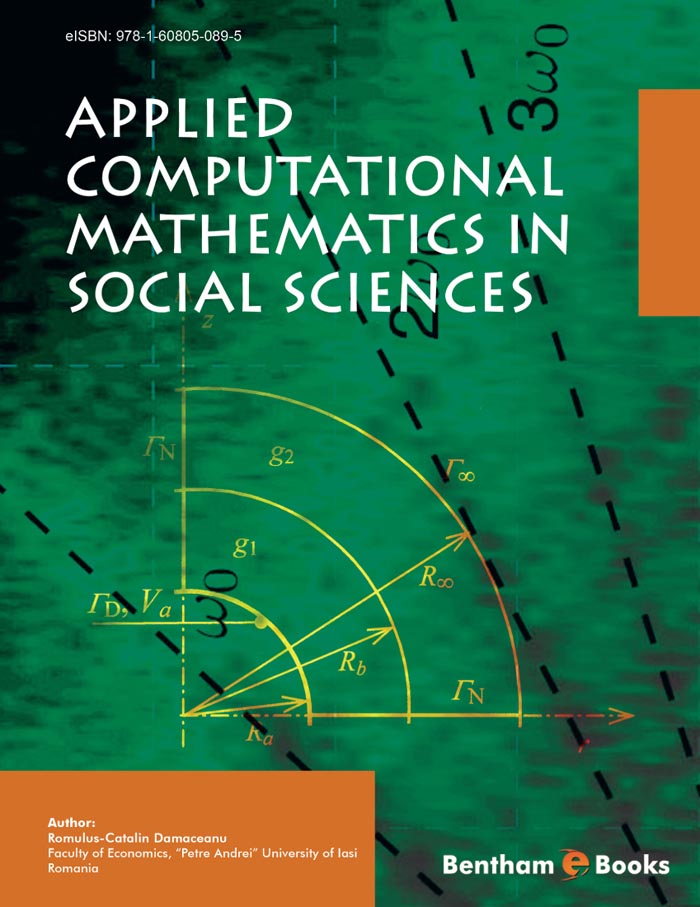Foreword
This book explores how researchers can apply Computational Mathematics in Social Sciences. Computational Mathematics involves mathematical research in areas of science where computing plays a central and essential role, emphasizing algorithms, numerical methods, and symbolic methods. Social Sciences comprise academic disciplines concerned with the study of the social life of human groups and individuals, including the next sciences:
-
Anthropology is the holistic discipline that deals with the integration of different aspects of social sciences, humanities, and human biology;
-
Economics is a social science that seeks to analyze and describe the production, distribution, and consumption of wealth;
-
Education encompasses teaching and learning of specific skills, and also something less tangible but more profound: the imparting of knowledge and well-developed wisdom;
-
Geography can be split broadly into two main subfields: human geography, and physical geography. The former focuses largely on the built environment and how space is created, viewed and managed by humans as well as the influence humans have on the space they occupy. The latter examines the natural environment and how the climate, vegetation, life, soil, water, and landforms are produced and interact;
-
History is the continuous and systematic research of past events as relating to the human beings, as well as the study of all events in time, in relation to humanity;
-
Law means a rule which (unlike a rule of ethics) is capable of enforcement through institutions;
-
Linguistics is a discipline that investigates the cognitive and social aspects of human language;
-
Political Science is a discipline that deals with the theory and practice of politics, description and analysis of political systems and political behavior;
-
Psychology is an academic and applied field involving the study of human behavior and mental processes;
-
Social Work is concerned with social problems, their causes, their solutions, and their human impacts;
-
Sociology is the study of society and human social action. It generally concerns itself with the social rules and processes that bind and separate people not only as individuals, but as members of associations, groups, communities, and institutions, and include the examination of the organization, and development of human social life.
All these eleven sciences are dealing with complex systems that imply an interdisciplinary research approach that combine knowledge from Computational Mathematics and Social Sciences. The problems connected with Social Sciences can be solved using agent-based modeling (ABM). This technique uses a computational model for simulating the actions and interactions of autonomous individuals in a network, with a view to assess the effects on the system as a whole. ABM combines elements of game theory, complex systems, emergence, multi-agents systems and evolutionary programming. Monte Carlo Methods are used to introduce randomness.
The book applies an interdisciplinary approach, that combines knowledge from Applied Computational Mathematics and Social Sciences with the scope to observe, analyze and discuss the evolution of an artificial society composed by intelligent agents created in the frame of NetLogo platform.
The book is organized like this:
-
The first chapter is an introduction of the book that gives readers the essential information regarding the two major fields approached by the book:
Applied Computational Mathematics and Social Sciences;
-
The second chapter will describe the
multi agent-based computational model of the artificial society that will be constructed using knowledge from the next Social Sciences:
Anthropology, Economics, Education, Geography, History, Law, Linguistics, Political Science, Psychology, Social Work, and Sociology;
-
The third chapter will describe the implementation in NetLogo of the multi agent-based model described in the second chapter;
-
The fourth chapter will use the computational model implemented in the third chapter for a set of computational experiments using NetLogo;
-
The last chapter will present the conclusions of the computational experiments done in the fourth chapter.
Alexandru Trifu
Faculty of Economics
"Petre Andrei" University of Iasi
2010

